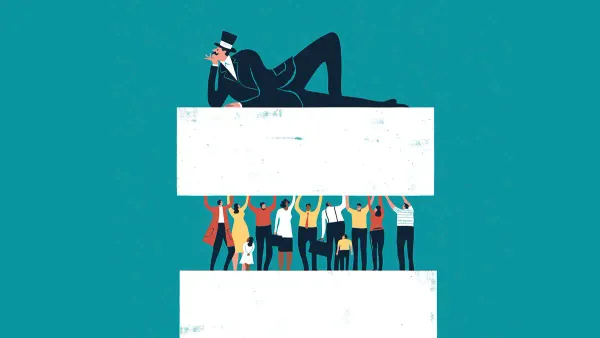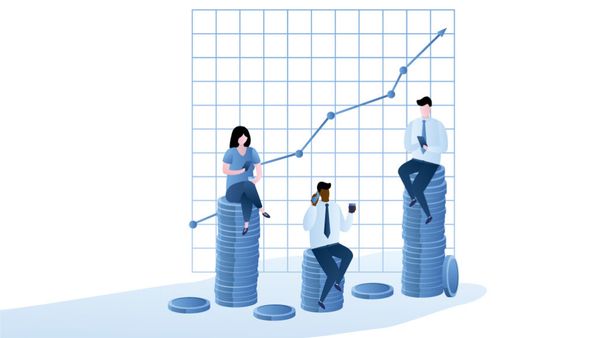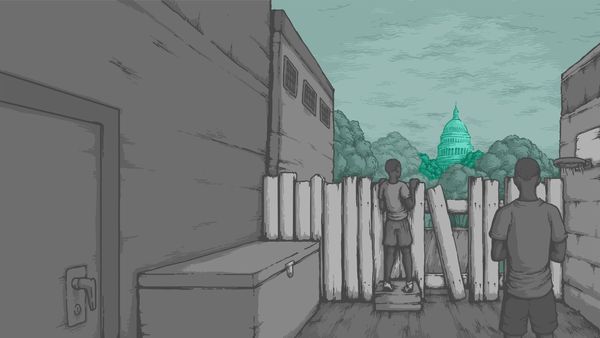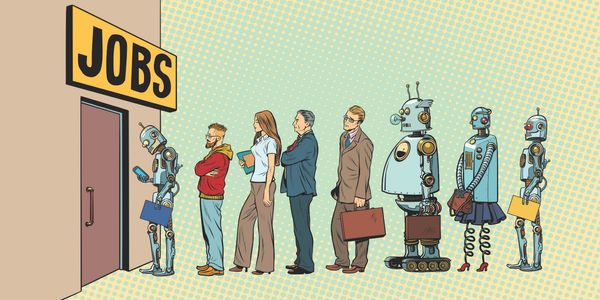Living in a society with high levels of wealth inequality can have various psychological and emotional effects on individuals, including stress, anxiety, and social isolation.
One of the most significant effects of wealth inequality is the stress it can cause. Studies have shown that individuals living in societies with high levels of wealth inequality are more likely to experience chronic stress, which can lead to various physical and mental health problems, such as heart disease, diabetes, and depression. This is because people living in these societies may feel a sense of insecurity or uncertainty about their future and may feel that they cannot achieve the same success level as those who are more wealthy.
Another effect of wealth inequality is anxiety. People who are struggling financially may feel a sense of insecurity about their ability to provide for themselves and their families, which can lead to feelings of anxiety and worry. Additionally, individuals living in societies with high levels of wealth inequality may experience social anxiety, as they may feel that they do not fit in with the more affluent members of society.
Social isolation is another psychological effect of wealth inequality. People struggling financially may feel that they cannot participate in the same social activities as those who are more wealthy, leading to feelings of isolation and loneliness. Additionally, people living in societies with high levels of wealth inequality may feel they cannot connect with others, as they may think they have little in common with those more affluent.
Furthermore, living in high wealth inequality societies may also lead to negative self-esteem, especially if people compare themselves to their peers and cannot reach the same level of success. This can lead to feelings of inadequacy, low self-esteem, and depression.
Means of Survival
It's important to note that wealth inequality can also have broader societal effects. For example, it can lead to increased crime rates, as people struggling financially may turn to criminal activity as a means of survival. Additionally, wealth inequality can lead to political instability. People who feel they are not being treated fairly may become disillusioned with the government and more likely to support extremist political movements.
Governments and societies need to take steps to reduce wealth inequality to promote the well-being of all citizens. This can be achieved through progressive tax policies, social welfare programs, and policies that promote upward mobility, such as education and job training programs.
It's important to note this is a summary of what could be more extensive research and also that not all individuals would experience the same effects. Different societies also have other cultural, political, and economic factors influencing how people perceive and deal with wealth inequality.
People living in societies with high levels of wealth inequality may feel they have little control over their circumstances and few opportunities to improve their situation. This can lead to feelings of hopelessness and helplessness, which can, in turn, lead to mental health problems such as depression and anxiety. It is important to note that these feelings can also be perpetuated by the lack of representation and representation in politics, media, and other areas, leading to the feeling of being invisible and not mattering.
Shame and Guilt
Additionally, living in a society with high levels of wealth inequality can also lead to feelings of shame and guilt. People struggling financially may feel that they cannot provide for themselves and their families in the way they would like, which can lead to feelings of shame and guilt. These feelings can be exacerbated by societal attitudes towards poverty, which can stigmatize struggling people and make them feel responsible for their circumstances.
Another psychological effect of wealth inequality is a lack of trust in institutions and fellow citizens. People living in societies with high levels of wealth inequality may need to be treated fairly by institutions such as the government, courts, and banks. However, they may have little faith in their fellow citizens, who may have more wealth and privilege. This can lead to feelings of alienation and mistrust.
It is worth noting that wealth inequality can significantly impact children's mental and physical health. For example, children growing up in lower-income households may have less access to quality healthcare, nutrition, and education, affecting their cognitive, emotional, and physical development. Additionally, living in or near poverty can be associated with higher stress levels and trauma, leading to behavioral, emotional, and mental health issues.
It is important to note that wealth inequality is complex, and not all individuals will experience the same effects. However, research indicates that wealth inequality can have various negative psychological and emotional impacts on individuals. Therefore, governments and societies need to reduce wealth inequality to promote the well-being of all citizens.
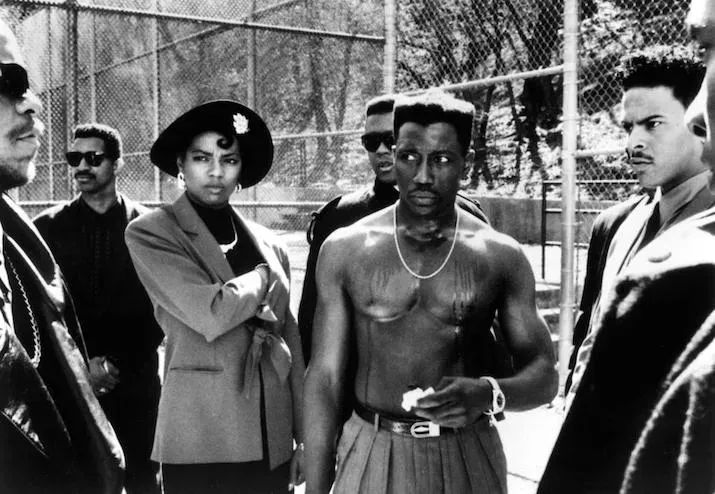
New Jack City
"New Jack City" is a crime drama film that depicts the story of a ruthless drug lord, Nino Brown, who rises to power in a poor, crime-ridden neighborhood in New York City. The film illustrates how wealth inequality can lead to a range of negative psychological and emotional effects on individuals, particularly those living in poverty-stricken areas.
One of the film's central themes is the stress and anxiety caused by living in a society with high levels of wealth inequality. The characters in "New Jack City" are constantly struggling to survive in a harsh and unforgiving environment where poverty, crime, and violence are a daily reality. This is evident in how the characters are portrayed as being on edge, constantly looking over their shoulders, and living in fear of being hurt or killed. This is an example of how chronic stress can be caused by living in a society with high levels of wealth inequality.
Another theme of the film is the social isolation caused by wealth inequality. The characters in "New Jack City" live in a community that is cut off from the rest of society, geographically and socially. They are isolated from the city's more affluent areas and cannot participate in the same social activities as those who are more wealthy. This is depicted in the way that the characters are shown as living in cramped, rundown apartments with little access to education or job opportunities. This is an example of how social isolation can be caused by living in a society with high levels of wealth inequality.
The film also shows how wealth inequality can lead to feelings of hopelessness and helplessness. The characters in "New Jack City" live in a community plagued by poverty, crime, and violence, and they feel they have little control over their circumstances. They see the drug trade as the only way to make money, perpetuating their poverty and hopelessness. This is an example of how hopelessness and helplessness can be caused by living in a society with high levels of wealth inequality.
"New Jack City" also depicts the effects of wealth inequality on trust and institutions. The characters in the film have little faith in the police, government, and other institutions; they feel they are not being treated fairly and are left to fend for themselves. This is an example of how wealth inequality can lead to feelings of alienation and mistrust of institutions.
It's important to note that "New Jack City" is a fictional portrayal of a specific time and place. Still, it illustrates the effects of wealth inequality in a powerful and impactful way. The movie represents the real-life struggles people can face in communities affected by poverty and crime, which are often a result of wealth inequality. As previously noted, it's important to consider that wealth inequality is a complex issue, and not all individuals will experience the same effects. However, research indicates that wealth inequality can have a range of negative psychological and emotional impact on individuals, and it is important for governments and societies to take steps to reduce wealth inequality to promote the well-being of all citizens.




